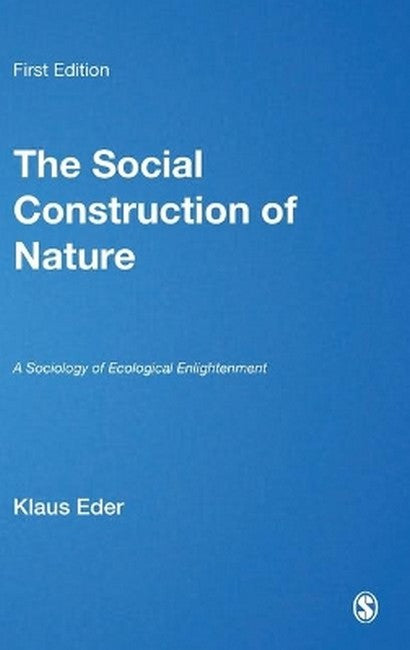Klaus Eder has written extensively on class, social movements and social structure. He is author of the New Politics of Class (SAGE 1993).
Request Academic Copy
Please copy the ISBN for submitting review copy form
Description
Introduction PART ONE: A SOCIAL THEORY OF NATURE The Theoretical Construction of Nature A Critique of Naturalistic Theories of Evolution The Evolution of the Societal Relationship to Nature as a Learning Process? An Ecological Critique of Practical Reason PART TWO: FROM NATURE TO CULTURE Culinary Morality A Comparative Analysis of Food Taboos Carnivorous and Vegetarian Culture Two Models of the Symbolic Organization of Society The Modern Discourse on What To Eat A Sociology of the Natural Foods Movement PART THREE: THE MODERN POLITICS OF NATURE Framing and Communicating Nature The Political Transformation of Modern Environmentalism The Politics of Nature A New Politics?
`Klaus Eder affords us with a rare, genuinely social consructionist perspective on nature. He must be credited, and his book praised, on numerous grounds. First and foremost, he retrieves, develops and introduces to a German and Anglo-Saxon readership what is probably to this day the most comprehensive and thoroughly social constructionist framework to apprehend human/nature relationships. The author also provides a sound account of food taboos across different cultures, including our own, thereby acting as a precursor to what is known as `symmetrical anthropology' This book is an important contribution to the social sciences in general' - British Journal of Sociology `The Social Construction of Nature argues that modernity's characteristic pride in dominating nature has caused us to forget that we live in a culture which forces us into a self-destructive relationship with nature. The author shows how this is reflected in our eating practices: carnivorous culture is seen as an extension of domination going back to Greek roots, while the emerging vegetarian culture is based on the idea of harmony with nature. In this context the opposite of the natural foods movements is the industrial exploitation of nature. The final part claims that contemporary environmentalism is a turning point in the cultural evolution of modernity' - Scientific and Medical Network Journal

